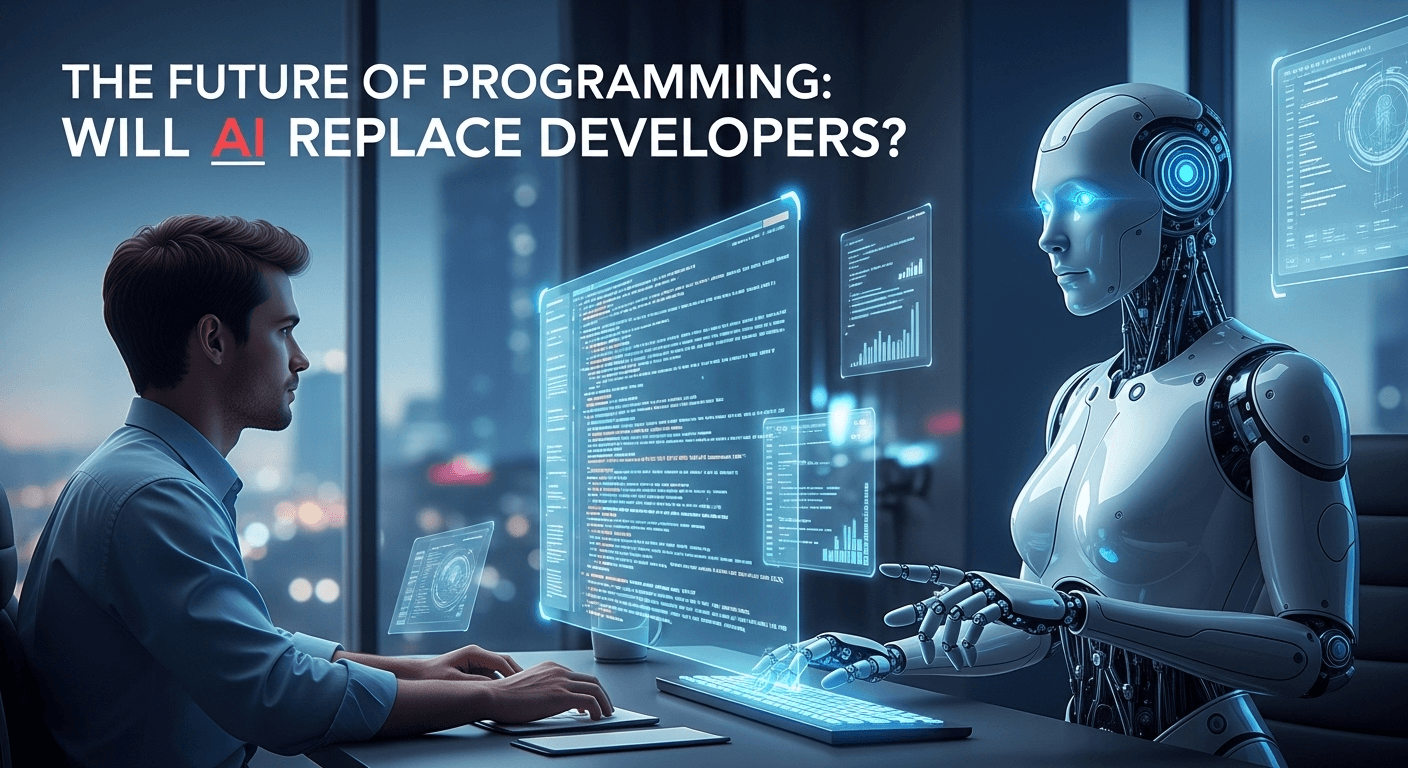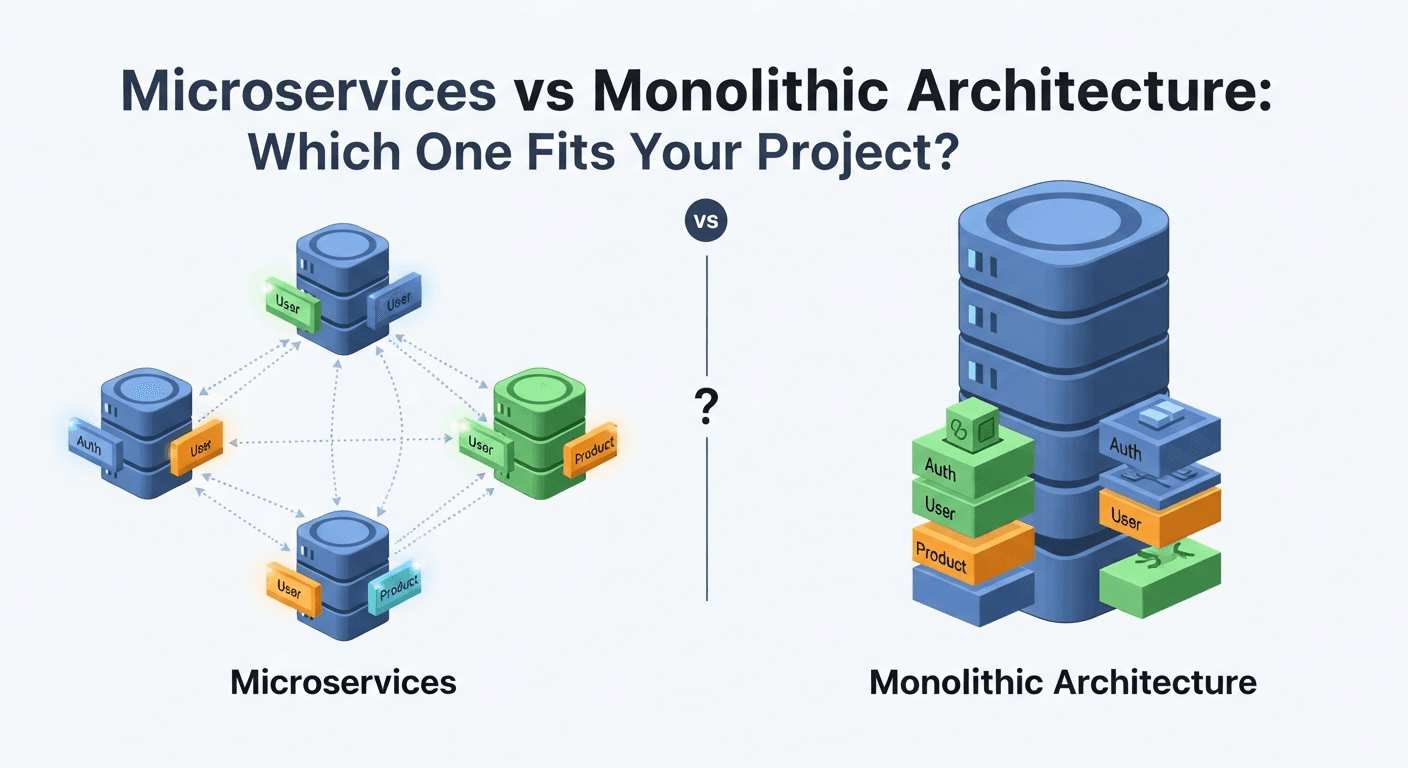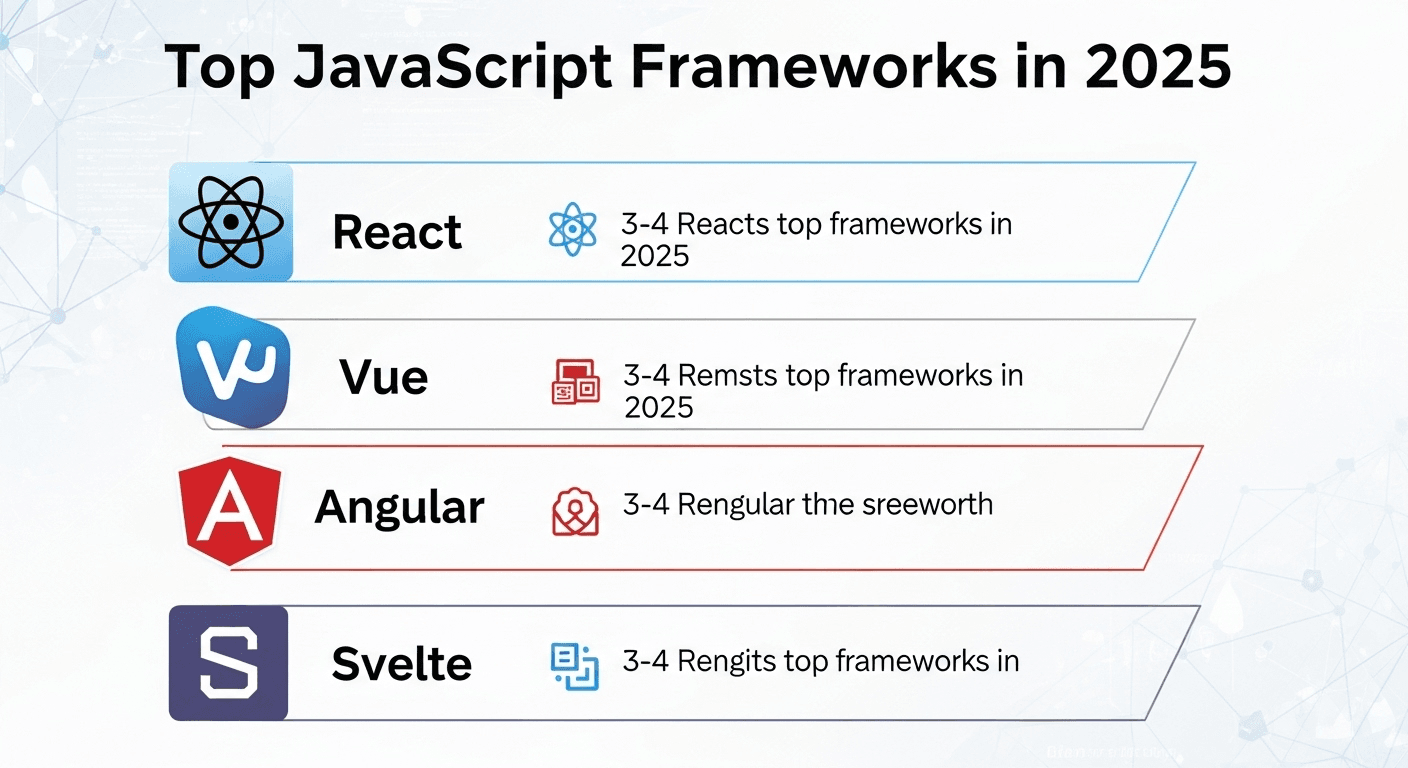The rapid evolution of artificial intelligence (AI) is transforming industries at an unprecedented pace, and software development is right at the center of this revolution. In recent years, AI-powered tools such as GitHub Copilot, ChatGPT, and automated testing frameworks have demonstrated their ability to generate code, detect bugs, and even suggest design improvements. These advancements have sparked both excitement and fear within the developer community.
On one hand, AI promises to make coding faster, reduce repetitive tasks, and help even non-technical people build applications. On the other hand, many programmers wonder: If AI can already write functional code, what will happen to human developers in the near future?
This debate—AI as a partner versus AI as a replacement—has become one of the hottest discussions in the tech world. To answer it, we need to explore not just what AI can do today, but also its limitations, the evolving role of developers, and how the future of programming might look in the age of intelligent machines.
How AI Is Changing Software Development
Artificial intelligence has already made a noticeable impact on the way developers write, test, and maintain software. While coding used to rely heavily on manual effort, AI-driven tools are reshaping the workflow and accelerating productivity across all stages of development.
1. Code Generation
AI-powered assistants like GitHub Copilot or ChatGPT can generate entire code snippets, functions, or even project templates within seconds. Instead of spending hours writing boilerplate code, developers can now focus on higher-level design and problem-solving.
2. Bug Detection and Error Prevention
Modern AI systems can analyze large codebases faster than humans. They are capable of identifying vulnerabilities, potential bugs, and logical errors early in the development cycle. This not only saves time but also reduces the risk of costly production issues.
3. Automation of Repetitive Tasks
Tasks such as formatting code, creating documentation, or setting up unit tests often consume significant developer time. AI tools can now automate much of this work, allowing engineers to concentrate on the more creative aspects of software engineering.
4. Personalized Learning and Knowledge Sharing
AI also acts as a mentor for developers. By providing real-time explanations, best practices, and alternative solutions, AI makes it easier for beginners to learn new languages and frameworks. For experienced professionals, it accelerates research and knowledge discovery.
AI is no longer just an experiment—it has become an integrated partner in software development. However, the real question is whether this partnership can evolve into full replacement, which leads us to the next discussion.
Can AI Fully Replace Developers?
While AI has proven to be a powerful assistant in the coding process, the idea of it fully replacing human developers is still far from reality. Programming is not just about writing lines of code—it’s about understanding context, solving complex problems, and designing systems that meet real-world needs. Here are the key reasons why AI cannot yet take over the developer’s role completely:
1. Limited Context Understanding
AI models are trained on patterns from existing data. While they excel at generating code based on prompts, they often fail to grasp the deeper business logic, long-term project goals, or the unique constraints of a specific application. Developers, on the other hand, can align technical solutions with organizational strategy.
2. Lack of Creativity and Critical Thinking
Software engineering often requires innovation—finding new solutions to problems that don’t have clear precedents. AI is great at repeating known patterns but struggles when it comes to original problem-solving and creative decision-making.
3. Human Collaboration and Communication
Developers do not work in isolation. They must collaborate with product managers, designers, QA testers, and stakeholders to build solutions that address user needs. AI cannot replace the empathy, negotiation, and teamwork skills that human developers bring to the table.
4. Ethical and Security Concerns
AI-generated code may introduce hidden vulnerabilities or unethical practices, such as unlicensed code reuse. Human oversight is essential to ensure software is safe, compliant, and aligned with industry standards.
In short, while AI can automate many tasks, it lacks the human judgment, creativity, and contextual understanding that make developers irreplaceable. Instead of viewing AI as a competitor, it’s more realistic to see it as a complementary tool—something we’ll explore in the next section.
The Future Role of Developers
As AI becomes more advanced, the responsibilities of software developers will inevitably shift. Instead of being replaced, developers will take on new roles that emphasize creativity, strategy, and oversight. The profession will evolve in the following ways:
1. From Coders to System Architects
AI can write code, but it cannot design complex systems that must integrate scalability, security, and usability. Developers will focus less on typing syntax and more on architecting robust software solutions that meet long-term business needs.
2. Supervisors of AI-Generated Code
Rather than manually writing every line, developers will increasingly act as quality controllers. They will review, refine, and optimize the outputs created by AI tools, ensuring that the final product is efficient, secure, and aligned with project requirements.
3. Problem Solvers and Innovators
AI is excellent at automating tasks, but humans remain better at addressing unique challenges. Developers will focus on solving problems that require critical thinking, cross-domain knowledge, and innovative solutions beyond what AI can generate.
4. Ethical and Responsible Technologists
The rise of AI also brings responsibility. Developers will play a key role in ensuring ethical use of AI, preventing bias in algorithms, and protecting user privacy. This human judgment will be crucial as AI becomes more integrated into everyday life.
In the future, developers won’t disappear—they will simply evolve into strategic leaders, AI supervisors, and innovation drivers. The coding landscape will look different, but human expertise will remain at the core.
Will Some Jobs Disappear?
As AI grows more capable, it’s natural to wonder whether certain programming jobs will become obsolete. The truth is that some roles may indeed shrink, especially those that involve repetitive or predictable tasks. However, at the same time, new opportunities will emerge.
1. Decline of Routine Coding Jobs
Positions that focus mainly on writing boilerplate code, simple scripts, or standard bug fixes are at higher risk of automation. AI can generate such outputs quickly and with relatively high accuracy, reducing the demand for entry-level repetitive tasks.
2. Rise of AI-Assisted Development Roles
While some jobs fade, others will expand. Developers skilled in AI-assisted programming will be in high demand. These professionals know how to leverage AI tools effectively, turning raw suggestions into optimized, production-ready software.
3. New Specializations in AI and Ethics
The growth of AI will also create new career paths, such as:
- Prompt Engineers – experts in designing precise queries to guide AI outputs.
- AI Tool Integrators – developers who specialize in embedding AI features into existing systems.
- Ethical AI Auditors – professionals who ensure AI-generated software is transparent, safe, and compliant with regulations.
4. Continuous Learning Becomes Essential
The developers who thrive will be those who adapt and upskill. Instead of competing with AI, they will learn how to collaborate with it, embracing lifelong learning as part of their career journey.
In short, while some traditional tasks may disappear, the future is far from bleak. AI will reshape—not erase—the profession, opening doors to new, high-value roles that didn’t exist before.
Conclusion: Collaboration, Not Replacement
The question “Will AI replace developers?” often sparks fear, but the reality is more balanced. AI is not here to eliminate programmers—it is here to change the way they work. By automating repetitive tasks and accelerating code generation, AI allows developers to spend more time on strategy, architecture, and innovation.
While some routine coding roles may decline, new opportunities are emerging in areas such as AI-assisted development, prompt engineering, and ethical oversight. The future developer will not only write code but also supervise AI, design smarter systems, and ensure technology serves humanity responsibly.
The future of programming is not a story of man versus machine, but rather man with machine. Developers who embrace AI as a collaborator instead of a competitor will lead the next era of software development.



